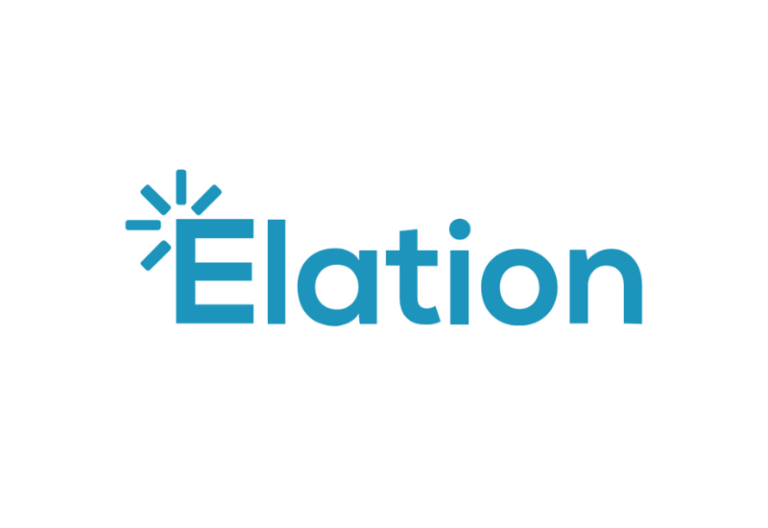Electronic Health Record systems, or EHRs, centralize patient data, streamline workflows, and improve healthcare outcomes. This guide explains the key aspects of EHR systems, helping providers choose and optimize platforms while ensuring compliance with applicable regulations.
Table of Contents

EHR Systems Explained (What Is an EHR System?)
EHR systems are digital platforms used by healthcare institutions to store and manage patient health data. These systems consolidate medical history, lab results, prescriptions, visit notes, and other health records in one place. With EHR software, healthcare providers can work more effectively as a team, deliver quality patient care, and comply with HIPAA rules and other relevant regulations.
Healthcare providers used to maintain healthcare records in paper format. However, with increasing digitization in the healthcare industry, medical records are transitioning to electronic formats.
Today, more healthcare providers are adopting EHR systems. Centers for Disease Control and Prevention shows that 88.2% of office-based physicians use any EHR or electronic medical records (EMR) systems, while 77.8% of office-based physicians use certified versions.
How EHR Systems Work
EHR systems work by centralizing patient information into a digital platform accessible to authorized healthcare providers. Core functions include storing patient medical histories, laboratory results, medications, and visit notes in a unified system.
EHRs streamline workflows by enabling providers to efficiently track patient care, schedule appointments, and generate reports. They also integrate with other software, enabling seamless communication and coordination across multiple healthcare services. EHR software integration helps reduce errors and enhance patient outcomes.

Key EHR System Features
Modern EHR systems offer a range of features designed to improve patient care and administrative efficiency, including:
- Patient Records: Centralized, up-to-date records in digital format accessible to authorized staff.
- Electronic Prescribing: Send e-prescriptions directly to pharmacies, minimizing transcription errors and issues with illegible handwriting.
- Clinical Decision Support: Provide healthcare providers with reminders and helpful alerts to aid in accurate diagnoses and effective treatment planning.
- Patient Portals: Enable patients to view, download, and manage key aspects of their medical care at any time and from any device.
- HIPAA Compliance: Built-in security and encryption features that safeguard patient data and ensure regulatory adherence.
Types of EHR Systems
How many types of EHR are there? Healthcare organizations can choose from several EHR system categories:
- Cloud-Based vs. On-Premise: Cloud EHRs offer remote access and lower IT overhead, while on-premise solutions provide complete control over data and infrastructure.
- Specialty-Specific Systems: Tailored platforms for areas like pediatrics, behavioral health, or dental practices, offering customized workflows and templates.
- Open-Source vs. Proprietary: Open-source systems allow more customization, whereas proprietary EHRs often provide robust support, regular updates, and out-of-the-box functionality.

Choosing the Right EHR System (Factors to Consider)
Selecting the right EHR system or software requires careful evaluation. Consider the following when evaluating vendors and assessing the best solution:
- Usability: Intuitive interfaces and ease of navigation for staff adoption and onboarding.
- Customization: Ability to tailor workflows, templates, and reports to specific practice needs.
- Vendor Support: Availability of training, technical support, and updates.
- Integration Capability: Ensure the system integrates smoothly with other tools such as billing software, pharmacy networks, and secure fax platforms.
- Compliance and Security: Ensure the system meets HIPAA and local regulatory standards.
Key adoption questions:
- Does the EHR integrate with existing tools, such as billing systems, laboratories, or telehealth platforms?
- Can it scale as your practice grows?
- What is the total cost to purchase, set up, and keep the system running?
The Most Common EHR System Providers
Today, various software providers offer EHR systems to hospitals and clinics. Definitive Healthcare lists the top EHR software vendors ranked by market share as of August 16, 2023:
- Epic Systems Corporation
- Oracle Cerner
- MEDITECH
- Evident a CPSI Company
- MEDHOST
- Altera Digital Health, a Harris Company
- Vista
- Proprietary Software
- CliniComp
Epic Systems is the most widely used, with 2,709 installations. Taking the second and third spots are Oracle Cerner, with 1,576 installations, and MEDITECH, with 896 installations.

Frequently Asked Questions About EHR Systems
How does EHR software improve patient care?
EHR software streamlines clinical workflows. It provides real-time access to health records and patient information, along with decision-support tools. With it, providers can make accurate diagnoses, reduce errors, and enhance coordination among care teams.
Are EHR systems secure and HIPAA-compliant?
Yes, modern EHR systems incorporate security features such as encryption, audit logs, and role-based access controls to safeguard sensitive patient information. Many EHR software platforms also ensure compliance with HIPAA and other healthcare regulations.
Can EHR software integrate with other healthcare tools?
Absolutely. EHR software often integrates with lab systems, billing platforms, telehealth solutions, and even HIPAA-compliant fax services. These integrations allow seamless information exchange and reduce administrative burdens for healthcare providers and their staff.
How do I choose the right EHR system for my practice?
Consider the EHR’s usability, customization options, vendor support, compliance requirements, and integration capabilities. Evaluate whether the EHR software can scale with your practice, meet regulatory requirements, and streamline workflows without overwhelming staff.
Is online fax still relevant in EHR systems?
Yes. Even with electronic health records, HIPAA-compliant faxing integrated with EHR software enables the secure transmission of patient documents. It ensures compliance, maintains audit trails, and reduces reliance on traditional and less secure fax workflows.
What is the most popular EHR system?
The most widely used EHR systems this year include Epic, Cerner, Athenahealth, and eClinicalWorks. Popularity often depends on practice size, specialty needs, and integration requirements.
EHR Systems & Secure Fax Integration With iFax
Even in digital-first healthcare, secure fax remains essential for exchanging medical records, prescriptions, and even billing. Modern HIPAA-compliant online fax solutions like iFax integrate seamlessly with EHR systems, offering:
- Developer-Friendly API: Enable fax capabilities to existing EHR software, enabling automated document workflows and secure data exchange.
- HIPAA-Compliant Fax Broadcasts: Send bulk faxes and run fax campaigns securely while maintaining full compliance with healthcare privacy regulations.
- EHR Fax Integration: Works seamlessly with leading EHR platforms, including Epic, Cerner, and Elation Health.
Integrating iFax with EHR systems ensures fast, secure, and compliant exchange of healthcare data. Request a demo now.







